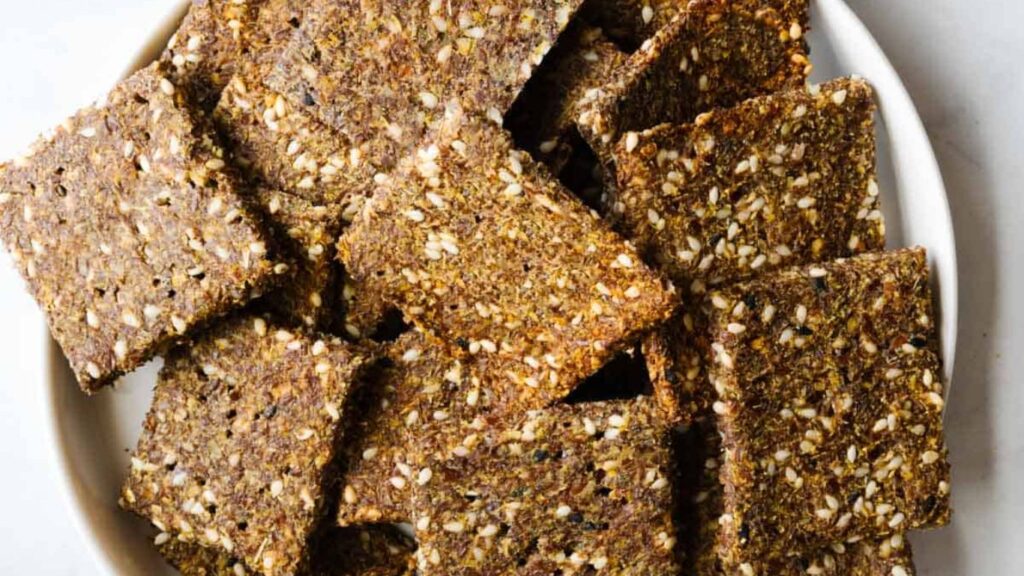Flax seeds, often considered a powerhouse of nutrition, have been cultivated since the dawn of civilization. Known for their health benefits and culinary versatility, these tiny seeds pack a significant nutritional punch. In this comprehensive guide, we’ll delve into the myriad of health benefits associated with flax seeds and how you can incorporate them into your daily diet.
Unlocking the Power of Flax Seeds
The Nutritional Profile of Flax Seeds
Before we explore the health benefits, let’s break down the nutritional content of flax seeds:
- High in Omega-3 Fatty Acids: Flax seeds are a rich source of alpha-linolenic acid (ALA), a type of omega-3 fatty acid, which is essential for heart health.
- Rich in Dietary Fiber: Both soluble and insoluble fibers are abundant in flax seeds, aiding in digestion and maintaining gut health.
- Packed with Lignans: Flax seeds contain up to 800 times more lignans than other plant foods. Lignans are phytoestrogens that have antioxidant properties.
- Quality Protein Source: They are a good source of high-quality plant protein, offering essential amino acids.
- Vitamins and Minerals: Flax seeds are also rich in vitamins like B1, B6, and minerals such as magnesium, phosphorus, and potassium.
Health Benefits of Flax Seeds
Improves Heart Health
The ALA omega-3 fatty acids in flax seeds are known for their heart-healthy benefits. They can help reduce the buildup of plaques in arteries, lower LDL (bad) cholesterol levels, and reduce blood pressure. Regular consumption of flax seeds is associated with a lower risk of heart attacks and strokes.
Aids Digestive Health
The high fiber content in flax seeds promotes regular bowel movements and prevents constipation. The soluble fiber content aids in maintaining healthy gut flora and provides a feeling of fullness, which can help with weight management.

Reduces Cancer Risk
Several studies have suggested that flax seeds may have a protective effect against certain types of cancer, particularly breast and prostate cancer. This is attributed to the lignans in flax seeds, which have estrogenic properties and can inhibit tumor growth.
Controls Blood Sugar
The soluble fiber in flax seeds slows down the digestion of sugars, which can help control blood sugar levels. This makes flax seeds a beneficial dietary addition for those managing diabetes or at risk of developing the condition.
Reduces Inflammation
ALA omega-3 fatty acids are known for their anti-inflammatory properties. Regular consumption of flax seeds may help reduce the inflammation associated with various conditions, such as arthritis.
Improves Hormonal Balance
For women, especially those in menopause, flax seeds can help balance hormones. The lignans, acting as phytoestrogens, may help alleviate menopausal symptoms like hot flashes and mood swings.
Supports Skin and Hair Health
The essential fatty acids in flax seeds can improve skin hydration and smoothness, reduce dryness, and combat skin conditions like eczema. They also promote healthy hair growth and can contribute to a reduction in hair loss.

Incorporating Flax Seeds into Your Diet
Choosing the Right Flax Seeds
Flax seeds come in two main varieties: brown and golden. Nutritionally, they are similar, so the choice is mostly a matter of personal preference in taste and appearance. They are available whole, ground (as flaxseed meal), or as flaxseed oil.
How to Eat Flax Seeds
- Ground vs. Whole: Ground flax seeds are more easily digested, ensuring you get the maximum nutrients. Whole flax seeds can pass through the digestive tract undigested.
- Flaxseed Oil: This oil is a concentrated source of ALA but lacks the fiber and protein found in whole or ground seeds.
Recipes and Ideas for Adding Flax Seeds to Your Diet
- Breakfast: Sprinkle ground flax seeds on oatmeal, yogurt, or blend them into smoothies.
- Baking: Substitute a portion of flour with ground flax seed in recipes for muffins, bread, or pancakes.
- Lunch and Dinner: Mix them into salads, soups, or use as a topping for casseroles.
- Snacks: Add to homemade granola bars or mix with nuts and dried fruit for a healthy snack.
Safety and Considerations
While flax seeds are generally safe for most people, there are a few considerations to keep in mind:
- Introduce Slowly: Due to their high fiber content, start with small amounts to prevent digestive discomfort.
- Pregnancy and Breastfeeding: Pregnant and breastfeeding women should consult their healthcare provider before adding flax seeds to their diet.
- Medication Interactions: Flax seeds may interact with certain medications, including blood thinners and diabetes medications. Consult with a healthcare professional if you are on any medication.

Conclusion
Flax seeds, with their rich nutritional profile and health benefits, are a valuable addition to a balanced diet. Whether you’re looking to improve heart health, manage digestion, or simply add a nutritious boost to your meals, flax seeds are a versatile and accessible choice. As we’ve seen, the potential health benefits of incorporating these tiny seeds into your diet are vast and varied, making them a true nutritional powerhouse.
Also read: Protein-Rich Vegan Foods Every Bodybuilder Should Know About
